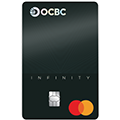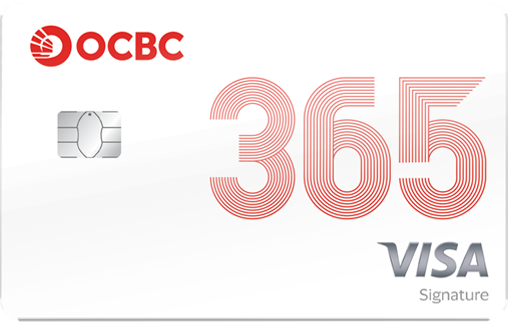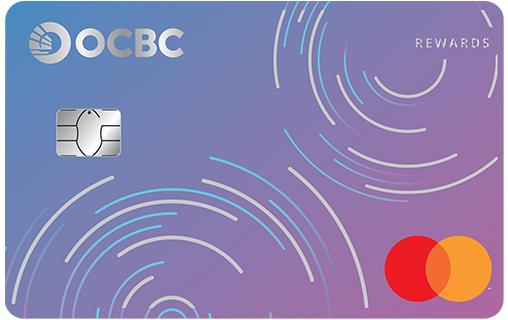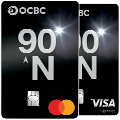Nutrition in your Silver Years
Nutrition in your Silver Years
Our bodies and activity levels change with age, and so do our nutritional needs. By age 80, we would require about 20 percent fewer calories compared to when we were 30.
As we grow older, our sense of smell, taste, and sight deteriorates. This also means that our bodies might not be able to sense hunger or even thirst as accurately as when we were younger. All these, together with poorer digestion, a less active lifestyle, and dental issues such as discomfort due to dentures or swallowing problems, often lead to seniors eating lesser than the recommended nutritional needs.
However, proper nutrition in your Silver Years is even more important to ensure your body stays healthy and your mind alert. You should opt for nutrient-dense foods to ensure you get an adequate amount of essential nutrients even with smaller meals. Nutrient-dense foods are foods that are packed with a variety of nutrients and examples are milk (rich in both protein and calcium), fruits (fibre, vitamins and minerals), oily fishes (protein and good fats) and etc.
Here are six eating tips for a healthier diet:
- Instead of having three big meals, split your meals into four to six smaller meals throughout the day. This will provide you with sufficient energy, and also help keep you alert and active throughout the day.
- Have at least 2 servings of oily fish a week as they are a good source of protein and good fats and are easy to ingest. Tinned fish such as sardine and tuna are good options as some contain edible bones that can give you a calcium boost. But remember, choose the lower in sodium options whenever you can.
- Red meat is a great source of iron which is important for your red blood cells. Choose leaner cuts of red meat and have them 2 to 3 times a week. For the rest of your meals, you can opt for leaner protein options such as skinless chicken, chicken breast, fish, beans, tofu and taukwa
- Don’t forget your dairy products or calcium-rich food. Some of these include low-fat dairy products such as milk, cheese, yoghurt and tofu or high calcium soy milk for those that are lactose intolerant. Taking in the recommended amount of 1000mg calcium daily can help to prevent osteoporosis and maintain your bone mass. Apart from that, dairy products also provide vitamin D which helps your body maintain healthier bones.
- Go for wholegrain options whenever possible. Wholegrain options such as brown rice, wholemeal/multi-grain bread, corn, oats and etc provide a good source of B vitamins and dietary fibre. Dietary fibre when taken in sufficient amounts not only helps with your bowel movement, it can also offer protection against cardiovascular diseases and stabilizes one’s blood sugar levels. When you start eating more dietary fibre, it is important to drink more water. This is because dietary fibre absorbs a lot of fluid and a lack of water will cause you to become constipated.
- Of course, you need to eat your fruits and vegetables. Fruits and vegetables are great sources of dietary fibre, vitamins, minerals, antioxidants and good plant chemicals called polyphenols. They also add a beautiful vibrancy to your meals and choose a variety of fruits and vegetables from all the different colour groups daily. You can achieve this easily by having 2 servings of fruits and 2 servings of vegetables daily.
Here’s what the Health Promotion Board recommends for those above the age of 51:
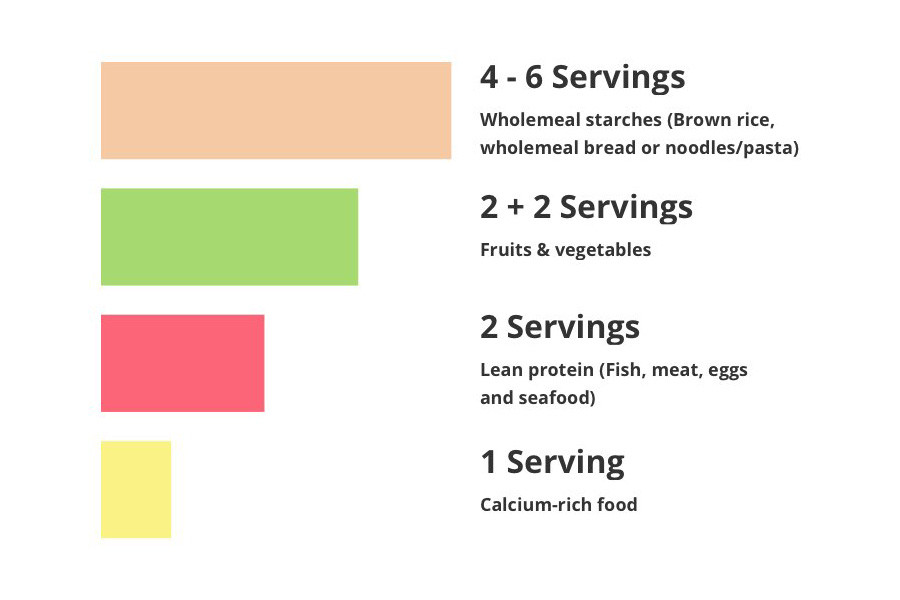
Did you find what you were looking for?
That's great! Is there anything else you would like to share?
Did you find what you were looking for?
This is embarrassing! How can we improve your experience?
An error occurred. Please check that you have input the correct information before re-submitting.
We are unable to capture your message at the moment. Please try again shortly.
Thank you for your feedback.
This will help us serve you better.


